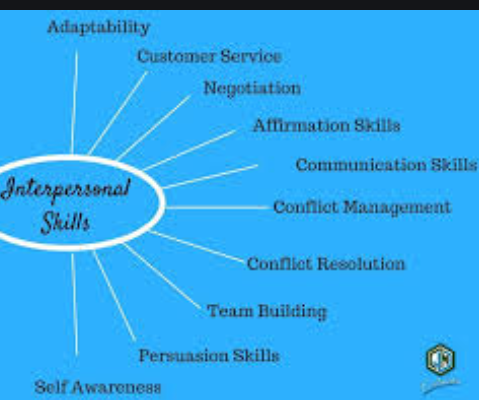The importance of interpersonal skills and why everyone needs to have it By editorial st:
All job seekers encounter the term “interpersonal skills” while browsing employment-related ads. What is the best interpersonal skill because you are aware of the implications of interpersonal skills?
Today, all employers, regardless of their business personality, are looking for candidates with excellent interpersonal skills, apart from mere academic performance and work experience.

Importance of interpersonal skills
We are sleeping in a society where interaction with people from countless backgrounds is inevitable. As a result, employers face the challenge of maintaining a cohesive workforce that performs optimally.
A good educational qualification combined with experience is fine when it involves performing employment. However, working with a team or working in a multicultural environment can be a completely different ball game.
This is where the interpersonal skills that form part of your emotional intelligence come to the fore. Interpersonal skills can easily be described as an aspect of your personality that helps you communicate and interact healthy with people.
Here, we’ll look at up to 10 interpersonal skills that employers generally seek.
Top 10 interpersonal skills
Interpersonal ability
Interpersonal skills are not just essential to your job. They are the decisive line between success and failure in all areas of life.
Therefore, it is essential to know and master these interpersonal skills.
1. Self-esteem
Confidence is ranked because it is the best interpersonal skill for each person. Unless you trust and believe in your abilities, you often have good qualifications and knowledge, but nothing important is achieved.
Confidence comes from a variety of sources. These include healthy financial conditions, proper family support, good social life, and confidence in one’s abilities.
Most people lack confidence because they don’t need an opinion about themselves. Instead, they rely on others believing in them. This results in an imminent low self-esteem and lack of self-confidence.
Many people suffer from a lack of self-confidence. The simplest way to build confidence is to ignore the opinions that others have expressed about you.
2. Oral communication
Good verbal communication is the second most important element of interpersonal skills. Nothing can be achieved without a clear understanding of yourself.
People live under the false belief that good verbal communication requires good vocabulary and command over the language.
This is a complete myth. Instead, honest communicators may help you understand what they are saying in just a few simple and direct words.
In general, all humans are born with good language communication skills. They are very prominent among toddlers. But as we grow, we lose them.
This can occur for a variety of reasons, from lack of confidence to fear of retaliation or just embarrassment.
You can improve your excellent oral communication skills just by talking to people. Doing something that scares you helps you overcome fear and shyness.
3. Good listener
Besides self-confidence and great verbal communication, you may be an even more honest listener. Giving someone hearing the patient is a highly desirable interpersonal skill in customer care and leadership.
That is, it understands what people are saying and allows them to be accurate while reading between lines about what is left behind.
It’s often really hard to be an honest listener, especially when someone in front of you is upset or abusive.
To develop your listening skills, focus on each of the above words and relate them to your situation. Listen for the purpose of understanding, not just to react or react.

4. Troubleshooting skills
Troubleshooting skills are highly desirable for each profession. It simply means the ability to investigate and resolve drugs for teams, internal and external situations, or their peers and customers.
Solving simple or complex problems requires good psychological analysis and therefore the ability to respond quickly to adjust for the damage it causes.
Problem-solving skills are taught at the university when given complex mathematical questions to solve in the exam. But as we grow, they dim, but often relapse.
The greatest appreciation for developing troubleshooting skills is to think outside the box or, as some thinkers say, throw it away.
Here, the term “box” means our way of thinking. Trying to find the answer in a textbook does not solve many problems. Unconventional methods often serve the purpose.
5. Empathy
Empathy is an interpersonal skill that we often misrepresent as empathy. It does not mean that you are merciful to the individual. Instead, it means

